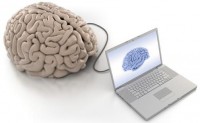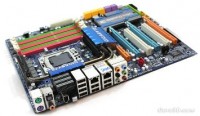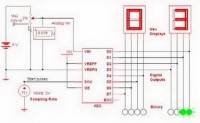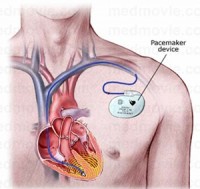Lecture
Dasar Algoritma dan Pemrograman
Aplikasi Sistem Elektronik Dalam Industri
Sistem Kontrol Digital (TKE4139)
Topics: Karakteristik dinamik dan statik sensor; Tipe sensor dan tranduser: modulator, modifier, dan self generator; Sifat dan klasifikasi sensor: resistive sensor, inductive sensor, capasitive sensor; Jenis sensor mekanik, elektrik, radian, kimia, magnetik, dan termal; Prinsip amperometrik; Prinsip potensiometrik; Prinsip thermis; Transduser piezoelektrik: prinsip dan aplikasinya; MEMS sensors: teori, desain dan aplikasinya; Sensor kimia dan biosensor; Sensor cerdas dan sistem multisensor; Aplikasi: rumah tangga, automobil, lingkungan, industri, medis, dll.
Dosen :
Dr. Agung Darmawansyah, ST., MT.
Dr.Eng.Ir. Didik Rahadi Santoso, M.Si.
Ir. M. Julius St., MS.
Eka Maulana, ST. MT. M.Eng.
[4] Linear Systems (Sistem Linier – TKE4028)
 Tujuan: Memberikan pemahaman konsep sinyal dan sistem linear dalam kawasan waktu (time domain) dan kawasan frekuensi (frequency domain) Menyelesaikan permasalahan sistem linear yang meliputi konvolusi, pemfilteran, modulasi, sampling, stabilitas sistem Memberikan pemahaman penggunaan alat bantu profesional (tool) seperti Matlab untuk analisis sinyal dan sistem linear.
Tujuan: Memberikan pemahaman konsep sinyal dan sistem linear dalam kawasan waktu (time domain) dan kawasan frekuensi (frequency domain) Menyelesaikan permasalahan sistem linear yang meliputi konvolusi, pemfilteran, modulasi, sampling, stabilitas sistem Memberikan pemahaman penggunaan alat bantu profesional (tool) seperti Matlab untuk analisis sinyal dan sistem linear.
Topik: Sinyal dan Sistem; Sistem Waktu-Kontinyu dan Sistem Waktu-Diskrit; Konvolusi; Deret Fourier dan Transformasi Fourier; Analisis Frequency Domain; Transformasi Laplace; Transformasi Z; Pengantar Filter; Representasi State Space.
Referensi:
- Chen, Chi-Tsong, Introduction to Linear System Theory, USA: Holt, Rinehart and Winston, Inc., 2000.
- Kamen, E. & Heck, B., Fundamentals of Signals and Systems. New York: Prentice Hall, 2000.
- Naresh K. S., Linear Systems, Michigan: John Wiley & Sons, 1991.
- Alan, V.O. Signals and Systems, Prentice Hall, Inc., 1997.
[5] Computer Interface Engineering (Teknik Antarmuka Komputer)
 The objective of this lecture is to give an ability for college students to design the computer interface peripherals in control system, communication, and application of the electronic instrumentations”.
The objective of this lecture is to give an ability for college students to design the computer interface peripherals in control system, communication, and application of the electronic instrumentations”.
Topics: Introduction of computer interface, motherboard systems, operating of bus system, computer memory systems, the interrupt system of the processor and its applications, Programmable Peripheral Interface, Analog to Digital Converter (ADC) and Digital to Analog Converter (DAC), computer system interface with analog circuits, computer systems interface with digital circuits, interface with parallel and serial port for applications of the microcontroller-based system.
:: lecture materials download:
[6] Computer Architecture (Arsitektur Komputer)
 This lecture will gives students an understanding of the fundamentals of computer architecture, excecution of the instruction, characterization and relation between peripherals.
This lecture will gives students an understanding of the fundamentals of computer architecture, excecution of the instruction, characterization and relation between peripherals.
Topics: overview of the system peripherals, computer organizations, general structure of computer system, Central Processing Unit, Register, Memory Unit, fetch-execute instruction cycles, bus system, pipeline, Instruction format, addressing, I/O peripherals, programmed I/O, interupt, computer peripherals, modern computer systems, array and parallel processors. (lecture material)
[7] Digital Electronics (Elektronika Digital)
 The aim of this lecture is to give an understanding of the analysis and design of the instrumentation system based on digital electronics.
The aim of this lecture is to give an understanding of the analysis and design of the instrumentation system based on digital electronics.
Topics: Signal and switching, Logic gate, logic family and its characteristic, practical consideration for design of digital systems, counter and its application, shift register, semiconductor memory, Programmable array, Multivibrator, and interface technique to the analog systems. (lecture materials)
[9] Medical Electronics (Elektronika Kedokteran)
 The objective of this lecture is to give an understanding related to the electronic system in the field of medical applications and ability to design the medical electronic devices.
The objective of this lecture is to give an understanding related to the electronic system in the field of medical applications and ability to design the medical electronic devices.
Topics: biopotential signal of the human body, tranducer and biopotential amplifier, electrocardiograph, electroencephalography, defibrilator, pacemaker, electrosurgical unit, blood pressure measurements, measurement of respiratory parameters, clinical laboratory equipments, and ultrasonic equipments. (lecture materials)

